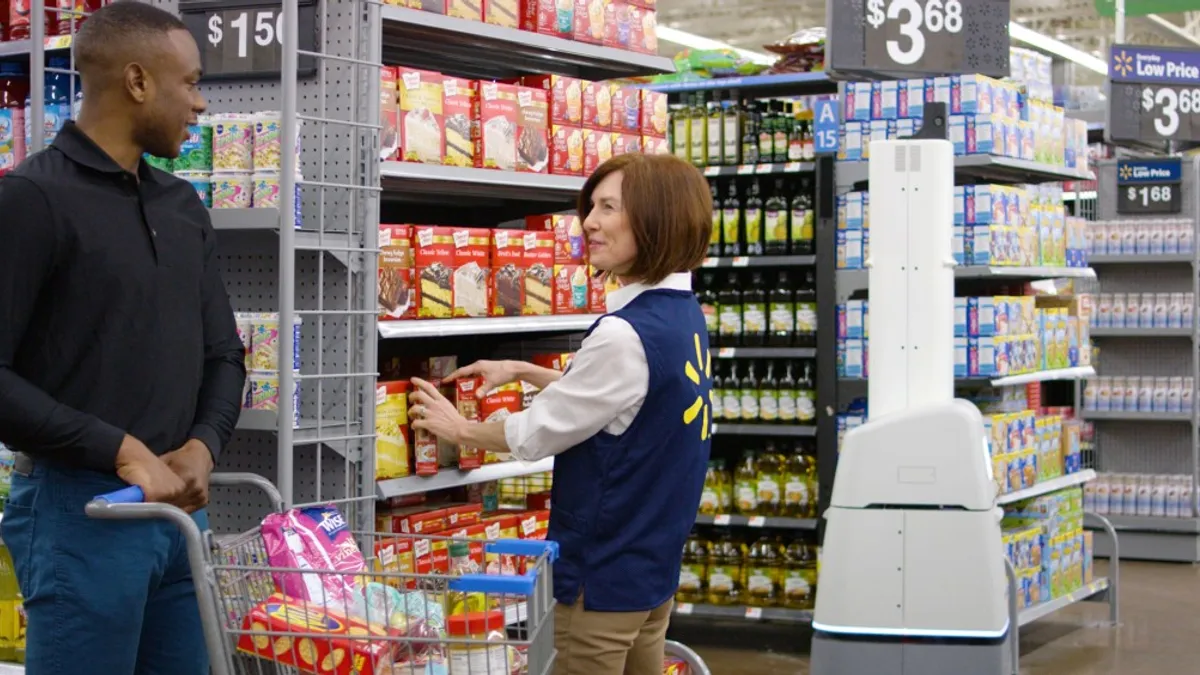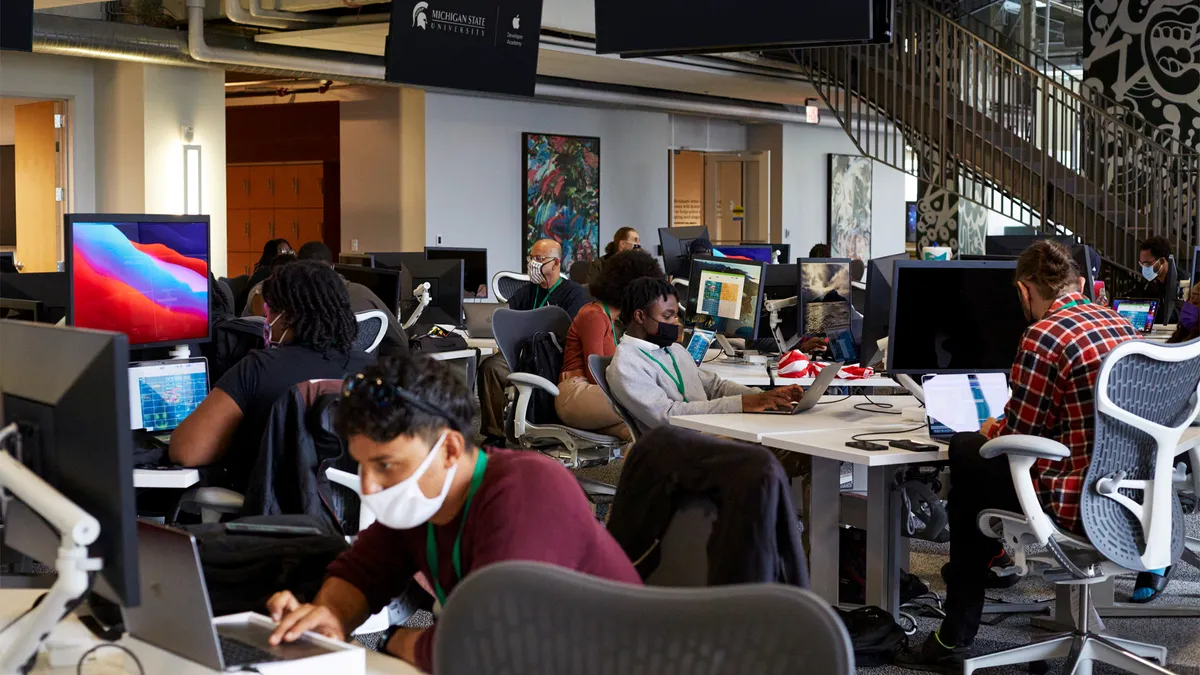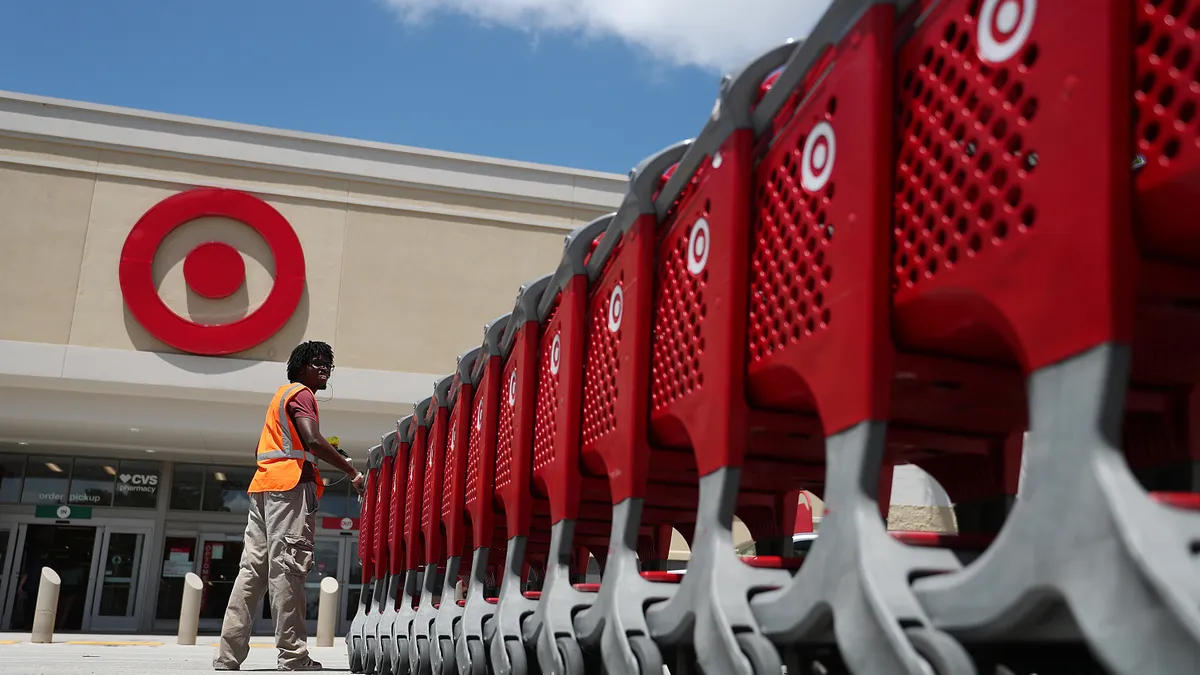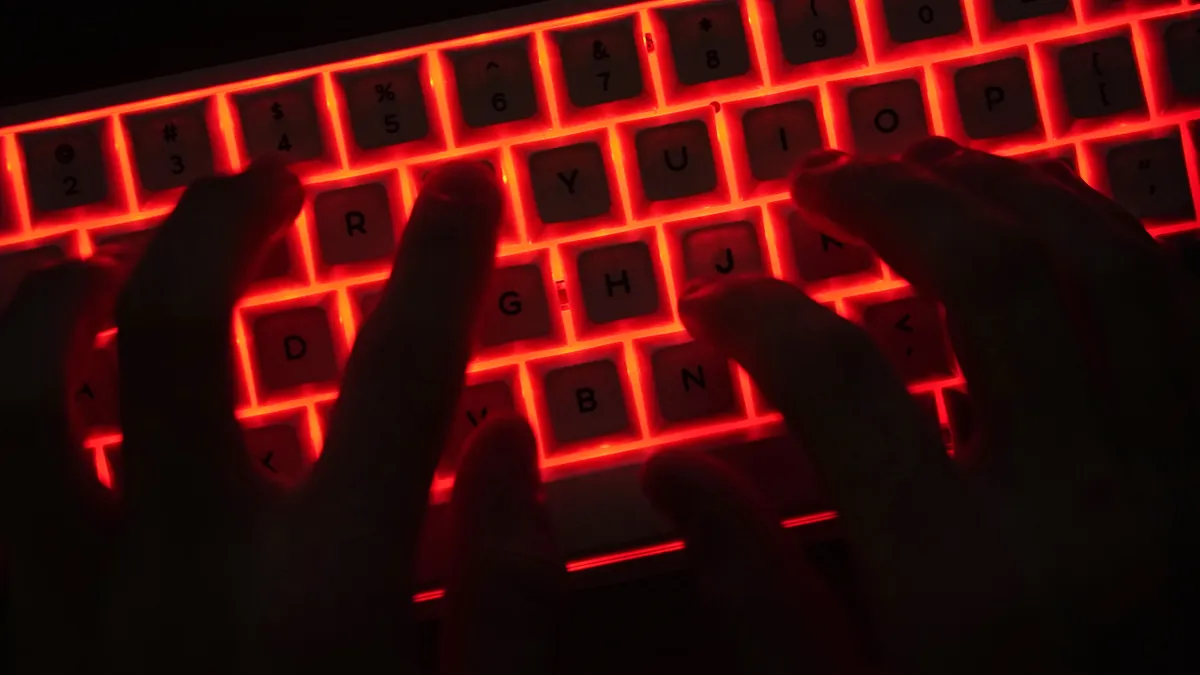When talent leaders think of robotics, large-scale factories with machine arms placing parts on a line may come to mind. But robotics have moved off the shop floor and made their way into retail, warehousing and a host of other applications — and HR has had to adjust on the fly.
While most respondents to a Deloitte study don't believe automation will eliminate jobs at their companies in the near future, almost half are augmenting existing practices to improve productivity. Art Mazor, principal at Deloitte Consulting, told HR Dive that the future of HR demands "Exponential HR Professionals," or workers that will apply advanced technologies and techniques to reimagine solutions to common business problems.
"HR must reimagine the work itself," Mazor said in an email, "collaborating with digital, cognitive tools — or what we like to call AI Assistants. This will create new roles that we call 'superjobs.'" These jobs leverage the productivity technology affords while integrating parts of traditional roles, he added.
Tech as a talent partner
HR teams already use AI in forms like chatbots, augmented and virtual reality and machine learning; programed bots screen applicants and analyze information for impact and actionable steps. The speed at which technology can process volumes of data frees up HR to work more closely on developing talent and growing workforces.
But beyond relegating repetitive tasks, talent execs may need to get used to AI as a partner regarding talent management and development. "Machine learning and predictive analytics tools can recommend training or professional development programs, provide personalized guidance, and help both existing workers and job-seekers chart their career paths based on analysis of their skills and experience," Ryan Craig, author and talent development expert, told HR Dive in an email.
Bots as buddies
Mazor noted that physical robots may already be entering the HR workforce, too: "One start-up in Europe and a number of companies are together experimenting with a physical robot in the form of a human face and torso that is placed on a desk and engages with job applicants as part of an initial screening discussion," he said. Early results from candidates are positive, he noted, and information on each candidate is gathered largely without bias.
Whether bots will be physically present in the workplace or exist as quiet virtual partners, HR will play a key role in making sure AI and humans work well together. "When I think about robots," Elliot Dinkin, CEO of Cowden Associates, told HR Dive, "I think about how they were just the focal point of the engineering, IT and manufacturing functions. The starting point though is really in HR as they are uniquely situated to support the interaction between people and robots." HR systems are critical, he added, as they are used as a focal point for engagement, talent management, training and recruitment.
"HR can nurture and foster a digital culture as it has the ability to influence the executives, and can also link the business to the strategy and then to the people," Dinkin said in an email.
Tech can free up recruiters time to focus on high-value candidates, and talent pros can leverage virtual reality for new hire orientation. Talent leaders have used data to spot trends and opportunities for training and growth and used augmented and virtual reality for training of all types, from physical tasks to soft skills.
"We see a significant rise in use of cognitive agents to assist HR and the workforce in performing their roles with greater quality, speed, and improved value," Mazor said. "Augmented and virtual reality will increasingly enable collaboration and learning from anywhere, expanding the opportunities for workers to grow skills through experiences."
The road to a hybrid workplace
The ideal situation will likely be a hybrid workspace where humans work in tandem with advanced robots that produce outcomes far exceeding the productivity either can achieve alone, Dinkin suggested. In some ways, robots will only work better with the assistance of humans. "Yes, clearly some of the mundane tasks will be replaced by robots — but the ones that require more creativity and the use of interpersonal skills and leadership will still be retained by humans," Dinkin said.
Given the need for HR personnel to help integrate humans and machines, Dinkin noted, HR will need to up their own expertise regarding AI tech — particularly if they want to remain the leaders of the future of talent management.










![Salesforce AI's CEO sits onstage across from Cristina Criddle. Screens that say Human[X] hang behind them.](https://imgproxy.divecdn.com/J71WpXWHjr8jmbCw_PX7Cp2YH7Pmo8dP66Pz0SEPfw4/g:nowe:0:104/c:1024:578/rs:fill:1200:675:1/Z3M6Ly9kaXZlc2l0ZS1zdG9yYWdlL2RpdmVpbWFnZS9HZXR0eUltYWdlcy0yMjA0NjUxNDM0LmpwZw==.webp)










![Salesforce AI's CEO sits onstage across from Cristina Criddle. Screens that say Human[X] hang behind them.](https://imgproxy.divecdn.com/4XVfO8mNsslv7_axsVip9IU74iKpLWgiY3616VXH4ow/g:nowe:0:104/c:1024:578/rs:fill:600:338:1/Z3M6Ly9kaXZlc2l0ZS1zdG9yYWdlL2RpdmVpbWFnZS9HZXR0eUltYWdlcy0yMjA0NjUxNDM0LmpwZw==.webp)